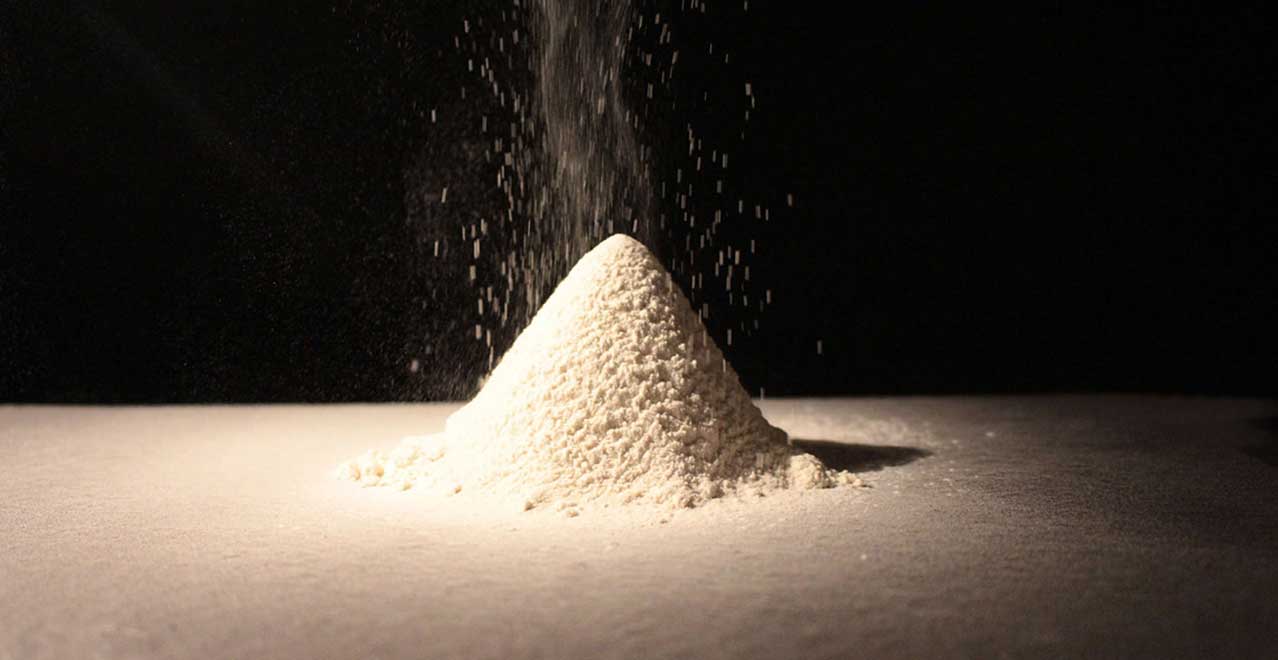Guar gum powder
A brief description
Guar gum is extracted from the endosperm of a leguminous shrub called Guar (Cyamopsis tetragonolobus). The so-called cluster bean is mostly grown in India and Pakistan between the months of July and December. Quality, availability and prices depend heavily upon the monsoon within this period. Rajasthan, Gujarat and Haryana are some of the most important growing regions. The dried guar beans are threshed in order to extract the guar seeds. In the next step, the hydrocolloid guar (guar splits) is produced by removing the germ and hull.
These guar splits are milled into guar gum powder, which is used as E412 in the food industry. The ready-to-use guar gum powder can hydrate in cold water and yields highly-viscous solutions, even in low concentrations.
There are a large number of producers in India with considerable differences with regard to production know-how and the implementation of modern quality control tools, HACCP in particular. As a result of our experience as well as the audits and on-site monitoring that we conduct, you can depend on the quality of our products. You profit from the comprehensive analyis performed by both our quality manufacturers in India and our in-house laboratory in Germany.
We offer you the highest levels of product safety and quality.
Applications of guar gum
Drinks
Stabiliser
Thickening agent
Opacifier
Confectionery
Suspension agent
Thickening agent
Dairy products/sauces
Suspension agent, stabiliser
Gelling agent
Thickening agent
Baked goods
Improved moisture properties, improved freezing properties, softer texture, crispier crust
Ice cream
Improved freezing properties
Prevents the formation of irregular ice crystals
Animal feed
Suspension agent, stabiliser
Gelling agent
Thickening agent
Numerous other applications
Thickening agent, stabiliser in the paper- and textile industry, fracking additive in the oil industry
Our product portfolio
Willy Benecke offers different grades. We can also provide you with certified organic grades.
- Our portfolio is differentiated according to the different particle sizes
- and according to the different viscosity ranges of 1% solutions
Our grades fulfill the statutory requirements of EU Regulation 231/2012 for E412. We believe in multiple checks, high quality, flexibility and individual service when it comes to packaging, transport and documentation. Our company is registered with the German authorities as a manufacturer and distributor of feed additives. Conformity with the applicable EU legislation is regularly checked by the German feed authorities.

